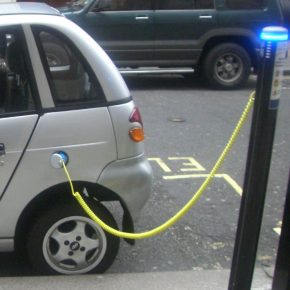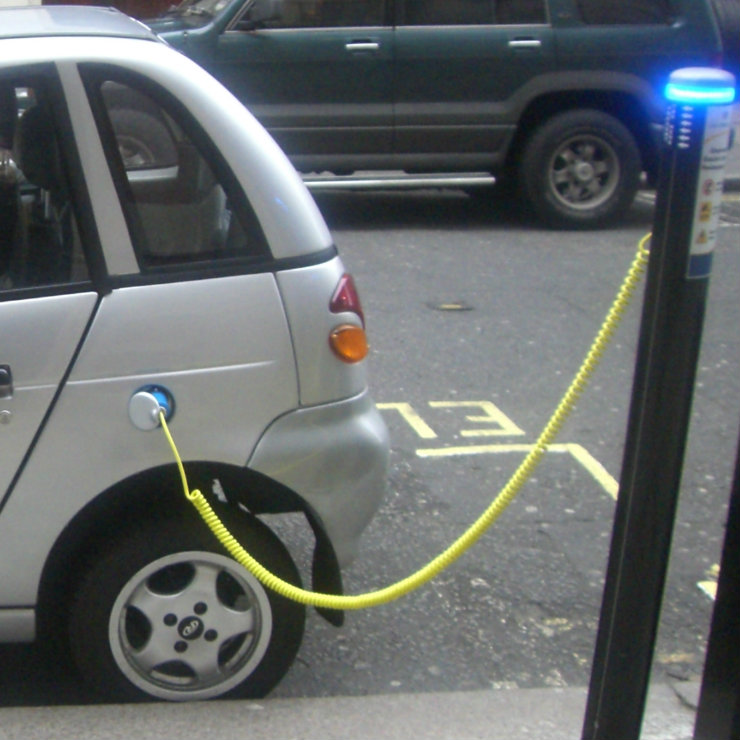Tydzień w gospodarce
Category: Trendy gospodarcze

(Frank Hebbert, CC BY)
“Encouraging cities to build up green credentials would help raise bus production to 1,000 a year by 2020,” Deputy Development Minister Jadwiga Emilewicz said. The next stage, she added, will be plug-in cars or auto parts and offering subsidies and tax incentives to buy them. Emilewicz didn’t mention any Polish companies’ names that would be involved.
“Are we able to catch up with the western countries that have been making engines for one hundred years? Not really,” Deputy Prime Minister Mateusz Morawiecki said. “However, we’re able to join in and surf on the fourth wave of economic revolution that’s ahead of us. This is our moment, our time.”
The Development Ministry wants Poland to benefit from a forecast that envisages the number of plug-in cars globally rising to 500 million in 2040 from 1 million now, according to Morawiecki.
“The plan would also help cut Poland’s reliance on Russian oil imports,” Deputy Energy Minister Michał Kurtyka said.
“This is highly progressive and a fast-growing market, and given that countries like Norway plan to ban conventional cars from 2025, the potential is huge, not to mention the jobs that could be created in Poland,” said Joanna Mackowiak Pandera, the head of the Forum for Energy Analysis in Warsaw and a former deputy environment minister. “The success depends on support systems as it all hinges on costs.”
Power and bus producers could benefit from the new initiative. The Energy Ministry estimates that the 4 terawatts of electricity – or 2.4 per cent of the country’s yearly output – needed to power 1 million cars would help utilities raise sales by PLN2bn (EUR455m) a year. Bus makers would also earn PLN2.5billion (EUR567m) extra from additional production.
The government has said it will use EU and local funds to boost local bus producers. Polish cities have so far bought a total of 16 plug-in buses, while the country’s biggest manufacturer, Solaris, made 1,279 vehicles in 2015, both electric and traditional ones, and cities replace about 1,000 of them each year.
Since the nation’s municipalities operate only about 11,000 buses, the government is hoping the public will buy the bulk of vehicles and reach the 1 million target.
The World Health Organization said last month that 16 of the EU’s 20 most polluted towns and cities, including Zywiec, Krakow and Katowice are located in Poland.
“Transport accounts for almost half of total emissions,” Morawiecki said. “This is the way we have a chance to respond to the great decarbonisation challenge set by the EU.”
In April South Korea’s LG Chem said it plans to build an electric vehicle battery factory in Poland to meet rising demand from European automakers. The plant will reportedly be completed in about one-and-a-half years.
The facilities, to be located in the southwestern Polish city of Wroclaw, will ultimately have a production capacity of 229,000 EV batteries a year, making it LG Chem’s second-biggest EV battery factory after China.
LG Chem – the battery supplier for General Motors’ upcoming electric car Bolt – counts a total of 25 automakers globally, including Renault, Volkswagen, Audi and Volvo in Europe, as its customers.
A spokesman for LG Chem said it was considering adding car battery production facilities.



